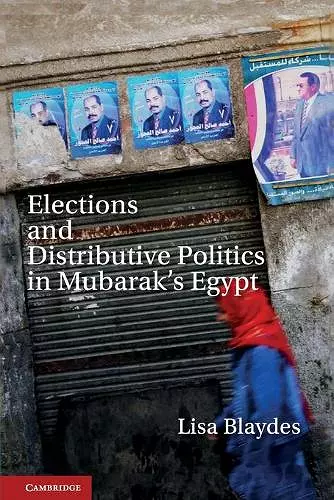Elections and Distributive Politics in Mubarak’s Egypt
Format:Paperback
Publisher:Cambridge University Press
Published:11th Jul '13
Currently unavailable, and unfortunately no date known when it will be back
This paperback is available in another edition too:
- Hardback£92.99(9781107000551)

This book examines the meaning of elections in authoritarian Egypt.
Although it would seem that elections matter little in authoritarian countries, elections are not only common in authoritarian regimes but also very useful for the dictator in efforts to keep power. This book examines the significance of elections in authoritarian Egypt.Despite its authoritarian political structure, Egypt's government has held competitive, multi-party parliamentary elections for more than 30 years. This book argues that, rather than undermining the durability of the Mubarak regime, competitive parliamentary elections ease important forms of distributional conflict, particularly conflict over access to spoils. In a comprehensive examination of the distributive consequences of authoritarian elections in Egypt, Lisa Blaydes examines the triadic relationship between Egypt's ruling regime, the rent-seeking elite that supports the regime, and the ordinary citizens who participate in these elections. She describes why parliamentary candidates finance campaigns to win seats in a legislature that lacks policymaking power, as well as why citizens engage in the costly act of voting in such a context.
'… the book is well written, thought provoking and insightful … [it] provides the reader with a framework through which to analyse the 2011/12 Egyptian parliamentary elections and is a building block for assessing Egypt without Mubrak.' Rebecca Young Greven, Political Studies Review
ISBN: 9781107617018
Dimensions: 230mm x 153mm x 20mm
Weight: 450g
294 pages